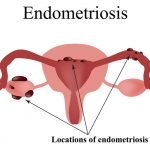Women are often more involved in their family’s health care than men. They usually schedule the annual physical not only for themselves but also for the kids and maybe even their husband. Ladies also visit the gynecologist and make their mammogram appointments as well as dealing with various specialists as necessary. However, there is one area they may be ignoring that can lead to very serious consequences. According to new research, women are much more likely to shrug off chest pain and other signs of heart disease.
The study, which took place at the Harvard School of Public Health in Boston, found that women tend to ignore any cardiac symptoms they are experiencing more commonly than men do.1 Gregoire, Carolyn. “Why Are So Many Women Ignoring Heart Attack Symptoms?” Huffington Post. 30 October 2014. Accessed 3 November 2014. http://www.huffingtonpost.com/2014/10/30/heart-attack-symptoms-women_n_6068030.html There were two different segments of the research, both involving men and women with an unconfirmed diagnosis of cardiovascular disease. The participants met with the scientists just prior to their undergoing an initial coronary angiogram evaluation. For the first portion of the experiment, the researchers asked the subjects questions regarding the extent to which they had angina, a common sign of heart problems characterized by chest pain, tightness, or a burning feeling. They were also queried about why they decided to see a doctor.
The next part of the research involved a second group of participants in the same medical situation. They too were interviewed to determine when and why they sought medical attention for any cardiovascular symptoms. The scientists then organized this group’s responses, sorting them by gender.
The results showed that women were approximately one-and-a-half times more likely than men to do nothing about any pain or other symptoms they felt until those symptoms were frequently occurring and severe. And most of the women, if they experienced any measure of symptom relief on their own, they delayed that visit to the doctor. The researchers stated that the women’s responses were typically evident of an “optimism bias,” which may sound like a very positive thing, but in reality, it means that they felt more secure in their health than they should. In other words, they may think they have a much lower chance of experiencing a serious problem than they truly do.
In addition, the scientists broke the data down into transitional stages from the point at which a subject has their first signs of heart disease to eventually reaching the “symptomatic tipping point” at which a patient is motivated to see a doctor. The stages they labeled were uncertainty, denial of symptoms, discussing symptoms with a non-medical third party, recognizing the potential gravity of the symptoms, seeking medical help, and acceptance. It appears that women often get stuck at denial and remain in that stage for a longer period than men, on average.
These findings may explain why studies have found that women generally are not treated for issues related to heart disease until the condition is quite advanced, which may result in more drastic treatments or a poorer outcome. That could be because many women still incorrectly believe that cardiac problems are mainly a man’s issue. In fact, according to the European Society of Cardiology, cardiovascular disease is the leading cause of mortality in women in all 27 European Union countries.2 “International Women’s Day: Women at a greater risk for cardiovascular disease than men?” European Society of Cardiology. 8 March 2013. Accessed 4 November 2014. http://www.escardio.org/about/press/press-releases/pr-13/Pages/women-greater-risk-cardiovascular-disease-than-men.aspx
The design of the current study, which even the scientists noted was not really ideal, depended a lot on the memories of the participants, which may offer considerably less-than-precise evidence. Participants were asked to recall when symptoms began and how long it took before they decided to schedule a medical appointment. These crucial factors may not have been reported with great accuracy because people often don’t remember details well. More closely followed volunteers might yield a different outcome–possibly even one that is much worse for women.
In any case, a 2013 study at Ohio State University in Columbus determined that women do not receive as thorough medical care for coronary artery disease as men do, which may also account for why they have a higher death rate from this condition.3 Sharma, Kavita and Gulati, Martha. “Coronary Artery Disease in Women.” Global Heart. 10 May 2013. Accessed 4 November 2014. http://www.globalheart-journal.com/article/S2211-8160(13)00038-0/fulltext But whether it’s because women wait too long to seek help or the medical community has some gender bias, hopefully, this research will serve as a wake-up call to ladies regarding their heart health. And, as with any other serious ailment, an ounce of prevention is worth a pound of cure. Make changes that have been proven to benefit the heart, such as eating a low-calorie, nutritious Mediterranean diet and exercising every day. Learn more about How to Prevent Heart Disease in Jon Barron’s Heart Health Newsletter.
References
| ↑1 | Gregoire, Carolyn. “Why Are So Many Women Ignoring Heart Attack Symptoms?” Huffington Post. 30 October 2014. Accessed 3 November 2014. http://www.huffingtonpost.com/2014/10/30/heart-attack-symptoms-women_n_6068030.html |
|---|---|
| ↑2 | “International Women’s Day: Women at a greater risk for cardiovascular disease than men?” European Society of Cardiology. 8 March 2013. Accessed 4 November 2014. http://www.escardio.org/about/press/press-releases/pr-13/Pages/women-greater-risk-cardiovascular-disease-than-men.aspx |
| ↑3 | Sharma, Kavita and Gulati, Martha. “Coronary Artery Disease in Women.” Global Heart. 10 May 2013. Accessed 4 November 2014. http://www.globalheart-journal.com/article/S2211-8160(13)00038-0/fulltext |











